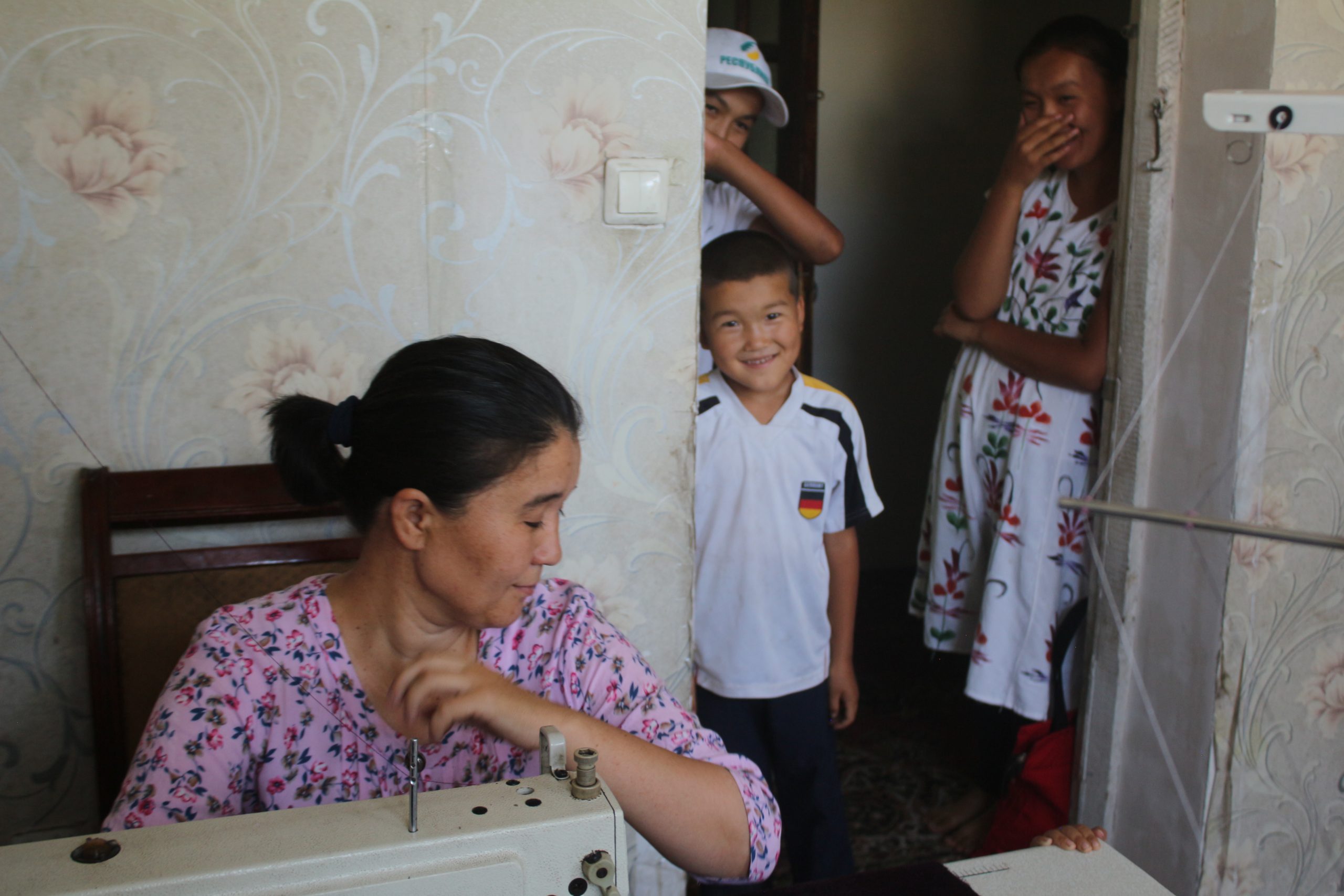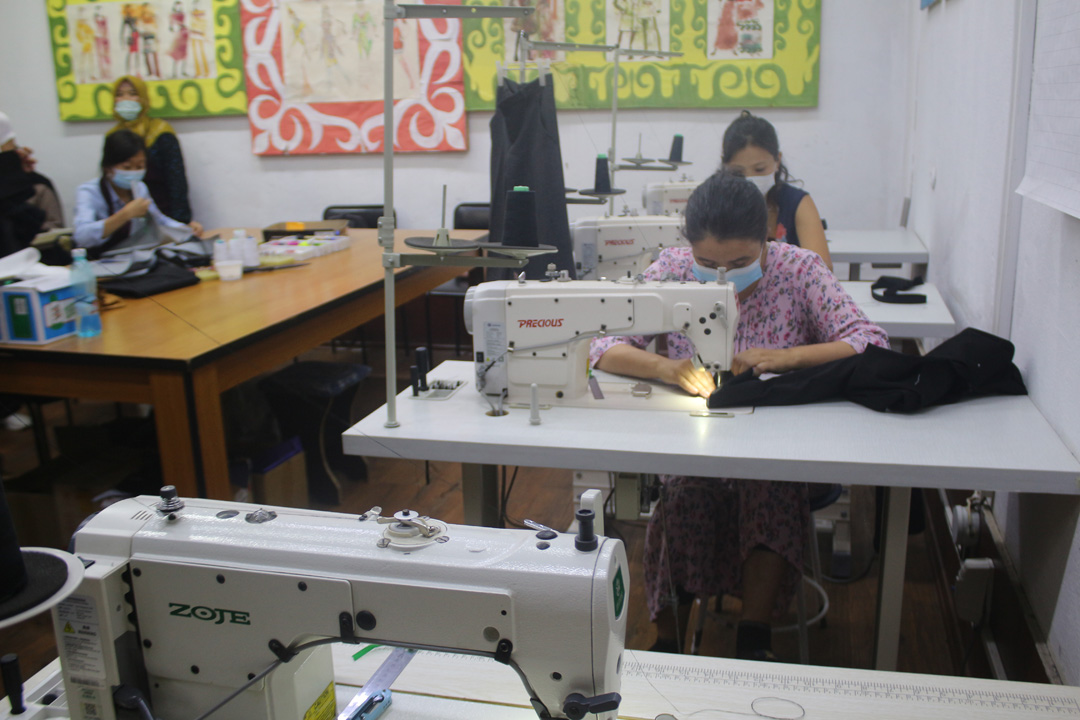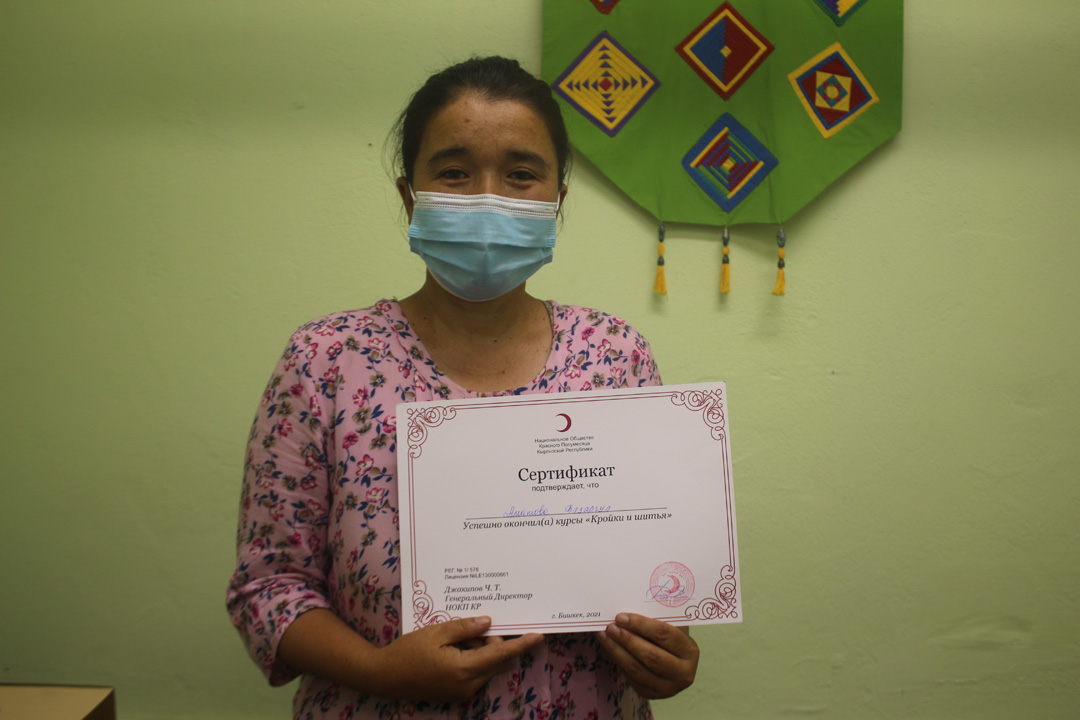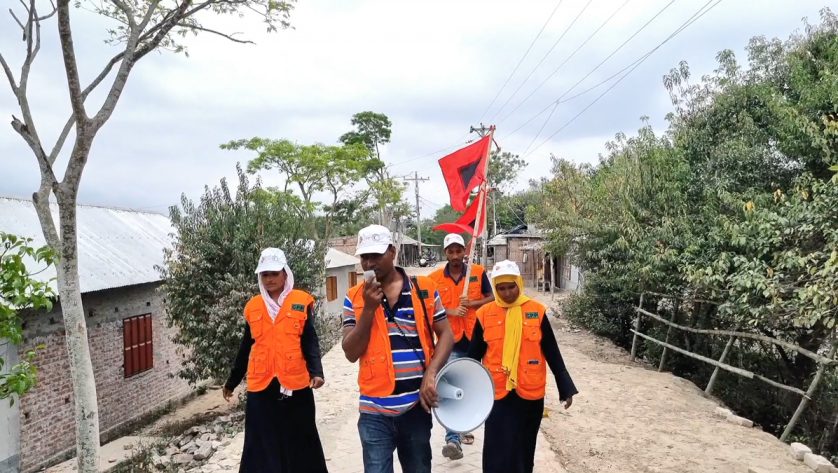The sewing centres are not new. RCSK has been implementing activities to train vulnerable women on sewing skills courses for 18 years. Since 2018, the Italian Red Cross is also supporting RCSK in the implementation of this project empowering women in eight regions of Kyrgyzstan. During the Covid-19 period, the IFRC also supported this activity as part of a global Covid-19 emergency appeal, which allowed the National Society to expand its offerings and even build a new sewing workshop.
There are now several sewing centres in Bishkek and in 7 other regions of the country. In just one four-month period between February and May of 2021, funded by the IFRC appeal, 534 women were trained. Most of these women are employed now and implement income-generation activities at home supporting their families.
In addition to the sewing course, the women enrolled also get first-aid training, as well as information sessions on healthy lifestyles and infectious diseases like Covid-19, TB, HIV, blood donation and importance of immunization of children.
For Bazargul, the courses were an unexpected, life-changing event. “I was shocked that there are free courses,” she says. “I wanted to try and went there. I went to the courses after the Covid-19 lockdown for one month of training. I learned a lot.”
The school is directed by Aigul Omurzakova, who also is a teacher at the sewing school. “Our courses are in great demand,” she says. “They are very important to our participants because it’s opportunity to make a living.”
A design engineer by profession, it’s clear that Aigul is more than just a sewing instructor to Bazargul and the other women here. “I accepted her as my own sister,” says Bazargul. “She taught me and provided psychological support. Even now I am constantly in contact with her.”
 Red Cross Red Crescent magazine
Red Cross Red Crescent magazine 









 Tech & Innovation
Tech & Innovation Climate Change
Climate Change Volunteers
Volunteers Health
Health Migration
Migration